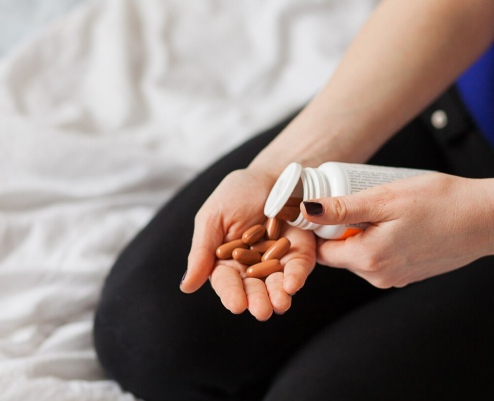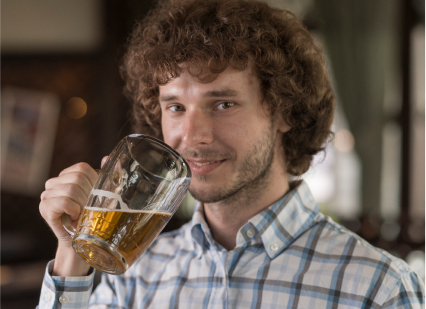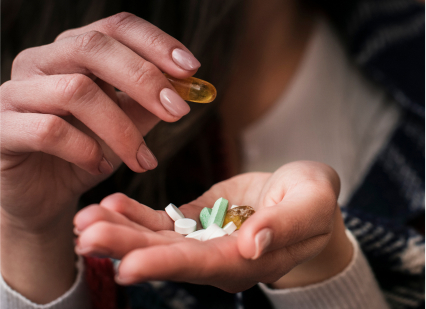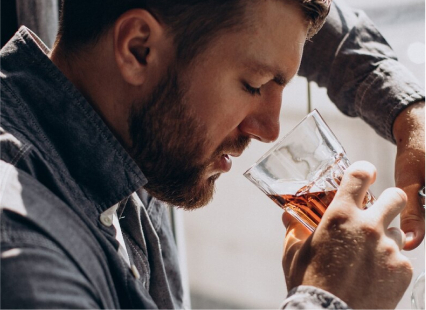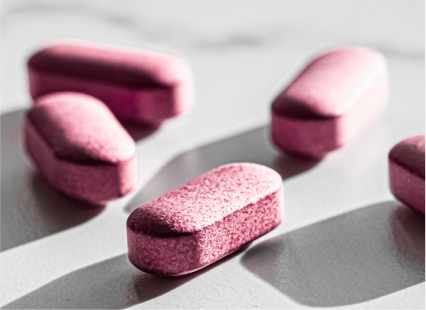When addiction has taken enough of a toll on an individual or family that they seek the help of addiction treatment, there is a sense of desperation. We understand that. No one wants to continue to endure pain and suffering. In such circumstances, some people may feel that they have no option but to put their trust in something beyond them: a treatment facility.
Still, does drug rehab work? With the increasing number of rehab centers offering various services, this question becomes much more important. Those struggling need effective treatments—ones that have long-lasting results and can help them recover and change their lives for the better. Are those measures of success, then? How long does someone stay substance-free, or how much has their life changed after rehab?

It seems that to answer the question, does addiction rehab work, first, we have to understand what success in rehab means. The answer to this and many other questions can be found in the text that follows. Dive with us on the topic of rehab success and rehab success rates. Let´s explore factors and barriers to successful rehab and the topic of relapse. Only by understanding these concepts can we understand what successful drug rehab means. Hopefully, this helps you make good choices for your recovery or the recovery of your loved ones.
Skip To:
Does Drug Rehab Work? Understanding Drug Rehab Success
First, we need to think about what success looks like for someone who is recovering from addiction. Does the individual in question have to stay sober for a week, a year, or a decade before we can say the rehab worked for them? Recovery is not black and white, and frankly, relapse is a part of the recovery process. So, are there a number of relapses that define a successful rehab?
No standard definition of rehab exists, so there can´t be a standard way to measure its success. Especially because some programs, like We Level Up Lake Worth inpatient rehab in Florida, offer comprehensive and tailored treatment for each client while others have a different approach, it is more difficult to collect comparable data.
For us, success is progress. Success is working to build the tools and strategies to overcome relapses. It is knowing when to reach out for help. It is gaining an understanding of why you use and why you need to stop. It is rebuilding relationships with loved ones, returning to work, and becoming a positive part of the community without drugs.
When drug rehab does work, it can lead to some of the greatest success stories. An effective drug rehab program helps its clients work through guilt, anxiety, and trauma and guides them to realize their potential. These are the success stories. Individuals who complete a rehab program often develop a new appreciation for life, love, and the pursuit of happiness.
This is why, when trying to answer the question does drug and alcohol rehab work, we look into the stories of our clients. We follow their individualized goals and outcomes. We speak of their lives after the rehab. We track their sobriety and check in regularly. Their success stories are our fuel, and we measure our rehab´s success by your recovery.

Measuring “Success” in Recovery
Success in drug rehabilitation is often measured by a combination of factors, including:
- Sustained abstinence
- Improved mental health
- Stable employment
- Better relationships
While complete abstinence is a common goal, success can also be defined by significant reductions in drug use and improved overall quality of life.
Short-Term vs. Long-Term Success
Short-term success in rehab typically refers to achieving initial sobriety and completing a treatment program. Long-term success, however, is measured by the ability to maintain sobriety over extended periods, often years, and integrate healthy behaviors into daily life. Long-term success rates are more challenging to achieve and require ongoing support and relapse prevention strategies.
Individualized Goals and Outcomes
Each person’s journey through rehab is unique, and success is defined by personalized goals. These goals might include:
- Achieving sobriety
- Repairing family relationships
- Securing employment
- Addressing co-occurring mental health conditions
Comparison with Other Chronic Diseases
When comparing drug addiction to chronic diseases like diabetes or hypertension, it’s clear that addiction, like these conditions, requires ongoing management. Relapse rates for addiction are similar to those of other chronic diseases, emphasizing that addiction should be treated with the same long-term, ongoing care approach. For example, just as diabetes management involves continuous monitoring and lifestyle adjustments, addiction treatment often requires regular therapy, support groups, and sometimes medication to maintain sobriety.

Get Your Life Back
Find Hope & Recovery. Get Safe Comfortable Detox, Addiction Rehab & Dual Diagnosis High-Quality Care.
Hotline (855) 459-2880Factors Influencing Rehab Success
Often, when posing the question, does drug rehab work, people forget that their own agency in the rehabilitation process is the key to its success. First, you make a choice about the treatment you will receive. Second, you are choosing how dedicated and engaged in the process you will be, and finally, you are opening yourself to help and support.
A factor that will undoubtedly impact the success of your rehabilitation is the type of program you choose. Today, people can opt for both inpatient and outpatient programs. Although each has its own benefits, practice shows that inpatient treatment as the first step can determine overall success.
This is due to the fact that, most of the time, addressing substance abuse involves a detoxification process that is more controlled and safe in an inpatient facility. Detox, especially when medicine-assisted, helps set a solid base for further steps in recovery. An outpatient program after inpatient treatment ensures long-term sobriety.
Another contributor to rehabilitation success is the length of the stay. It comes as no surprise that longer stays usually lead to better results. Longer processes mean more time to focus on oneself and discover issues underlying substance abuse. However, how long you should stay at substance abuse treatment facilities in Florida should be determined based on your particular situation.
Ensuring a support system is another significant factor in your recovery. Ideally, you can rely on your family and friends once you return from the rehab center, but any type of healthy support can aid recovery success. Meeting peers and getting involved in support groups can contribute to overall support and the success of rehabilitation.
Finally, your commitment and engagement with the rehabilitation process are crucial for success. Showing up for every therapy session, staying open to the process, and ongoingly working on understanding yourself and your behavior are essential elements of any success story.
Barriers to Successful Rehab
Many factors contribute to the success of a rehab program, but others may act as a blocker. Some barriers to rehab´s success relate to the person who needs help, while others relate to the environment. They can be roughly divided into two groups:
- Barriers related to the lack of awareness and knowledge: To begin a healing journey, one needs to be aware of the problem. More often than not, people need quite a lot of time to recognize their substance use as problematic. This can be due to the overall acceptance of substance use in some circles or because of stigma following drug abuse problems and, therefore, fear among people to come out as someone struggling with addiction.
- Barriers related to social factors (understanding and acceptance): Our social environment can sometimes push us to act in a maladaptive way, either by peer pressure or unconsciously enabling dysfunctional behavior like substance abuse. The environment not being ready to support an addict in the recovery process can seriously impair the rehab process and lower its success.
These barriers can be addressed, and we can play a role in that. By making rehab more accessible, educating the public, and customizing approaches to rehab, we can ensure that the answer to the question does drug and alcohol rehab work is a positive one.

How to Overcome Barriers to Rehab Success
It is easy to ask the question, “Does drug rehab work?” It is not that easy to ensure that all the conditions are met to make addiction rehab work. It is crucial to:
- Make drug and alcohol rehab accessible
- Provide tailored treatment plans
Making Rehab Accessible
It´s difficult to question does addiction rehab work in situations in which many do not have access to recovery programs. Substance Abuse and Mental Health Services Administration (SAMHSA) found that 90 percent of people who need drug rehab do not receive it.
We Level Up Lake Worth FL is trying to contribute to the accessibility of recovery programs by accepting the majority of insurance plans.
We are one of the rehabs in Florida that accept Blue Cross Blue Shield, an insurance company committed to supporting mental health and substance abuse disorder treatments. Almost all BCBS policies cover some part of your recovery journey with us, but we can always verify if that´s the case with your insurance plan.
We also belong to a list of rehabs in Florida that accept Cigna, which, depending on the policy, covers a lot of the costs that come with drug or alcohol addiction treatment. This means that, as someone who is on a Cigna insurance plan, you may count on at least partial coverage of your stay with us.
We Level Up Lake Worth FL aims to provide luxury yet accessible rehab programs, and if your insurance does not cover our services, we can explore another payment option to ensure you get the treatment you need.
Providing Tailored Treatment Plans
Does drug rehab work? It may depend on the addiction treatment plan. Drug rehab centers in Florida need to offer a variety of treatment methods. People may have different preferences and capacities, impacting the overall success of specific therapeutic treatments. This is why We Level Up Lake Worth FL tailors rehab programs and carefully chooses and combines various treatment methods, such as:
- Cognitive Behavioral Therapy (CBT): This evidence-based therapy approach found supporters among scientists and practitioners. Since its establishment, it has been used for a variety of mental health disorders but has proven its efficiency in the treatment of drug abuse disorders as well. The core of this approach is the identification of thinking patterns that lead to maladaptive behavior, such as substance use. Once identified, the therapist and client are working on establishing new adaptive patterns and behaviors.
- Dialectical Behavior Therapy (DBT): Derived from CBT, this approach has similar concepts but emphasizes acceptance and mindfulness. Originally developed for bipolar personality disorder (BPD), it is often used in dual-diagnosis situations for co-occurring BDP and substance abuse disorders.
- Alternative therapies (mindfulness, exercise, biofeedback, yoga): Although named alternatives, some of these approaches have a long history in the cultures they come from. They add to the holistic approach by treating body, mind, and spirit simultaneously. They help people connect with their environment and themselves. Mindfulness is often at the center of alternative therapies and helps develop stress management and coping skills, helping prevent relapse in the future.

In addition to psychotherapy, our drug rehab programs typically include medication-assisted treatment (MAT) to help the body cleanse from the drugs in the most comfortable way possible. We aim to treat a person as a whole, and this holistic aspect of our work is very important to us.
What to Ask to Find Out: Does Drug and Alcohol Rehab Work?
If you´re inquiring about rehab centers in Florida and wondering how to know does drug rehab work in that particular facility, make sure to ask certain questions. Here are just a few:
- What treatments and methodologies do you implement?
- How do you discover the underlying causes of addiction?
- What qualifications does your staff have?
- Does your facility have any certifications?
- What accreditation does your recovery center possess?
- What success metrics do you use?
- What is your success rate?
Getting answers to these questions might not offer a single answer to what interests you the most—does drug and alcohol rehab work? However, they will provide you with valuable insights into the quality of the service. You will also get a peek into what the facility values and stands for. Then, you can make an educated decision about your rehab.

Does Addiction Rehab Work? Yes!
The simple and straightforward answer to the question, does drug rehab work, is yes. A more elaborate answer would add that the success of any rehab program depends on many factors. Some, like the existence of different treatment options, enable the rehab process, adding to its success. Others, like misconceptions about addiction and the stigma surrounding it, can make one´s recovery difficult and lower the success rate.
For We Level Up Lake Worth, FL, your progress is the measure of success we are interested in. Many testimonials speak of success stories, and we take them as the most important success rate we can track.
If you are struggling with drug abuse and looking for a well-rounded and attentive service, we would be happy to be part of your success story. Call us, and may your rehab journey begin.
Start a New Life
Begin with a free call to an addiction & behavioral health treatment advisor. Learn more about our dual-diagnosis programs. The We Level Up treatment center network delivers recovery programs that vary by each treatment facility. Call to learn more.
- Personalized Care
- Caring Accountable Staff
- World-class Amenities
- Licensed & Accredited
- Renowned w/ 100s 5-Star Reviews
We’ll Call You
Source
“Drug Rehab Success Rates and Statistics.” American Addiction Centers, 12 July 2023, americanaddictioncenters.org/rehab-guide/success-rates-and-statistics.
